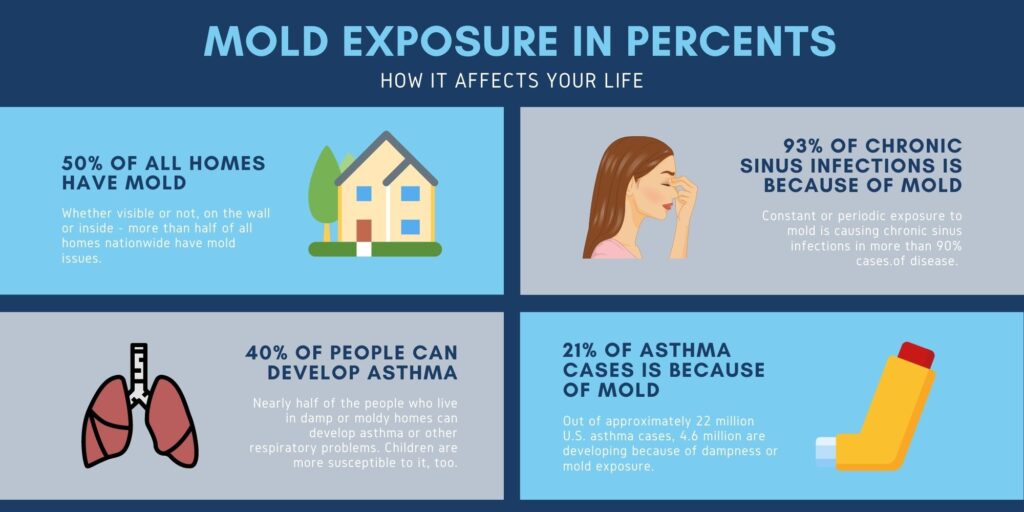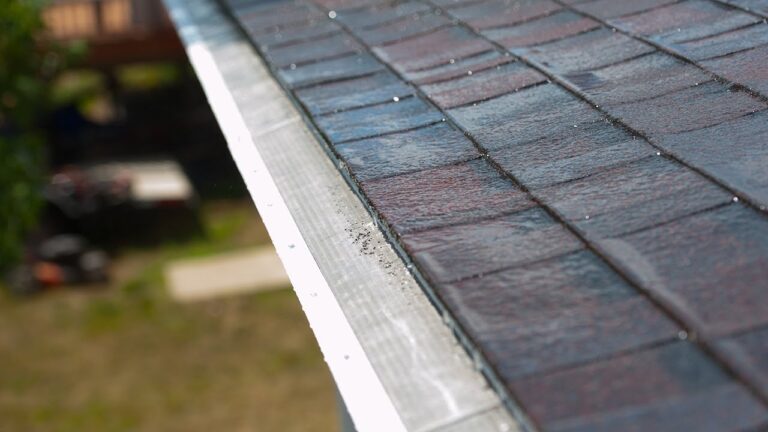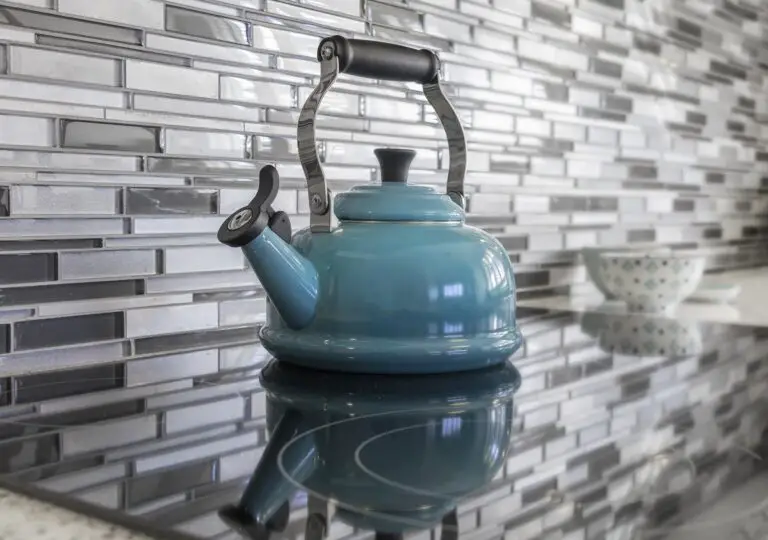Commercial Mold Troubles: Tackling Mold Restoration Challenges with Expertise
Mold is a silent predator that could spell disaster for your commercial property. In the world of real estate, mold represents one of the significant challenges that could jeopardize the building’s structural integrity and create health hazards.
With the right expertise, however, commercial mold troubles can become manageable, and their negative impacts can be efficiently mitigated.
In this article, we’ll explore the complexity of mold problems, the role of expert services in addressing these challenges, and how appropriate intervention techniques can transform a mold-stricken property back to its original glory.
Read on to discover the intellectual journey through commercial mold problems and their efficient solutions.
Key Points:
- Mold in commercial properties can cause structural damage and health hazards, making it essential to address the issue promptly.
- Different types of molds can infest commercial buildings, such as black mold, Aspergillus, and Cladosporium, each with its own risks and characteristics.
- Professional mold remediation services offer experienced experts who can provide a customized approach to effectively eradicating mold and preventing its regrowth.
- These professionals have access to specialized equipment and adhere to industry standards, ensuring quality work and thorough cleanup and restoration.
- Preventive measures, including regular maintenance, prompt repairs, proper moisture management, and the use of mold-resistant products, can help prevent mold issues in commercial spaces.
Understanding Commercial Mold Troubles
Mold troubles aren’t just confined to residential structures – commercial buildings aren’t immune either. Factors like damp interiors, poor ventilation, roof and plumbing leaks all contribute to mold growth.
Over time, these seemingly insignificant invaders can morph into major commercial mold problems, resulting in visible patches, foul odors, and eventually compromising the structural integrity of the property.
The Dangers of Molds to Commercial Properties

Mold development brings not only infrastructural dangers but also a significant health risk for those who frequent the property. Prolonged exposure to molds can cause health issues like allergies, asthma, and other respiratory problems.
Plus, molds can damage building materials, from wallboards and ceiling tiles to wooden studs and carpets, necessitating costly repairs or replacements.
Different Types of Molds and Their Impact
Understanding the different types of molds is vital for combating commercial mold troubles. The molds usually found in commercial properties include:
- Aspergillus: often in oxygen-rich environments
- Cladosporium: a common outdoor and indoor mold that can cause allergies
- Stachybotrys or black mold: renowned for its toxicity and the severe health issues it can cause
- Penicillium: a fast-spreading type usually found in carpets and wallpapers, potentially causing allergies and respiratory problems
- Alternaria: commonly found in high-moisture areas like bathrooms, and can cause allergic reactions.
It’s important to remember that prompt action and professional intervention are the best ways to handle mold infestations. It’s best to contact the nearest commercial mold remediation & removal company when you spot a problem.
The Role of Professional Mold Remediation: Why You Need Expertise
Fighting the stubborn mold issue calls for more than DIY solutions; it needs the knowledge and expertise that professional mold remediation services bring to the table.
These professionals are well-versed in tackling mold issues of varying magnitudes, equipped with the right tools and effective procedures to ensure complete eradication of mold.
Here’s why availing of professional mold remediation services is necessary:
Experience and Expertise
Mold remediation professionals have extensive experience dealing with different types of mold in diverse settings. Their expertise ensures that the mold problem is not only effectively managed but also that the root cause is addressed to prevent regrowth.
Customized Approach
Each mold problem is unique, varying based on the mold type, the extent of spread, and the building specifics. Professionals provide a tailor-made solution for each case, ensuring effective and lasting mold remediation.
Quality Assurance
Professional remediation services guarantee quality work. They adhere to strict industry standards and have a systematic approach to mold eradication, ensuring thorough cleanup and restoration.
Proper Remediation Equipment
Mold remediation requires specialized tools and equipment, such as air scrubbers, dehumidifiers, and HEPA vacuums, to remove existing mold, manage airborne mold spore levels, and prevent future infestations. Professionals have access to such equipment, giving them an edge over DIY remediation attempts.
Hiring professional mold remediation service providers not only helps in removing the existing mold infestation but also ensures effective steps are taken to prevent future recurrence.
Their expertise, tailor-made solutions, and access to specialized equipment are essential for maintaining a mold-free commercial environment.
An Overview of Commercial Mold Restoration Techniques
Mold restoration involves multiple stages – detecting the mold presence, testing to determine the type, containment, filtration, removing mold-infested materials, cleaning and sanitizing the area, and dehumidification.
Post-removal, professional restoration services ensure that space is returned back to its original, mold-free state, balancing good indoor air quality, and preventing future mold occurrences.
Moving Forward: Preventive Measures Against Mold in Commercial Spaces
To prevent persistent mold issues in commercial buildings, preventive measures play a pivotal role. A proactive approach not only reduces immeasurable trouble later but also safeguards the value of your property. Here are some effective preventive strategies:
- Regular Maintenance Checks: Scheduled inspections of potential problem areas – basements, bathrooms, kitchens, and other damp areas – can help in early mold detection. Look out for signs like water damage, visible mold spots, or a musty smell. Regular scrutiny of HVAC systems is imperative, as these can also be mold breeding grounds.
- Prompt Repairs: Any sign of water leakage or damage should be immediately addressed. Delay in repair works may give the molds a conducive environment to multiply. Make sure to dry out the affected areas post-repair to prevent any mold infestation.
- Building Moisture Dynamics: Understanding the moisture dynamics of your building is crucial. Monitor areas with high humidity levels and seek to regulate and balance these levels across the property. Dehumidifiers can be useful in this regard, especially in damp areas.
- Good Ventilation: Well-ventilated spaces can deter mold growth. To achieve this, ensure windows and vents are kept open whenever possible to maintain good airflow. Also, consider upgrading HVAC systems to improve indoor air quality and prevent moisture build-up.
- Use of Mold-Resistant Products: When building or repairing, consider using mold-resistant products like mold-resistant drywall or Sheetrock, and mold inhibitors for paints. These products can prevent mold colonization, especially in high-moisture areas.
- Proper Waste Management: Regularly dispose of old newspapers, books, and cardboard boxes, as they can attract moisture and foster mold growth.
A timely, proactive approach can save substantial time and money in the long run, preserving the structural integrity and aesthetic appeal of your commercial space. Fight mold troubles with a balance of understanding, prevention, and appropriate intervention.






